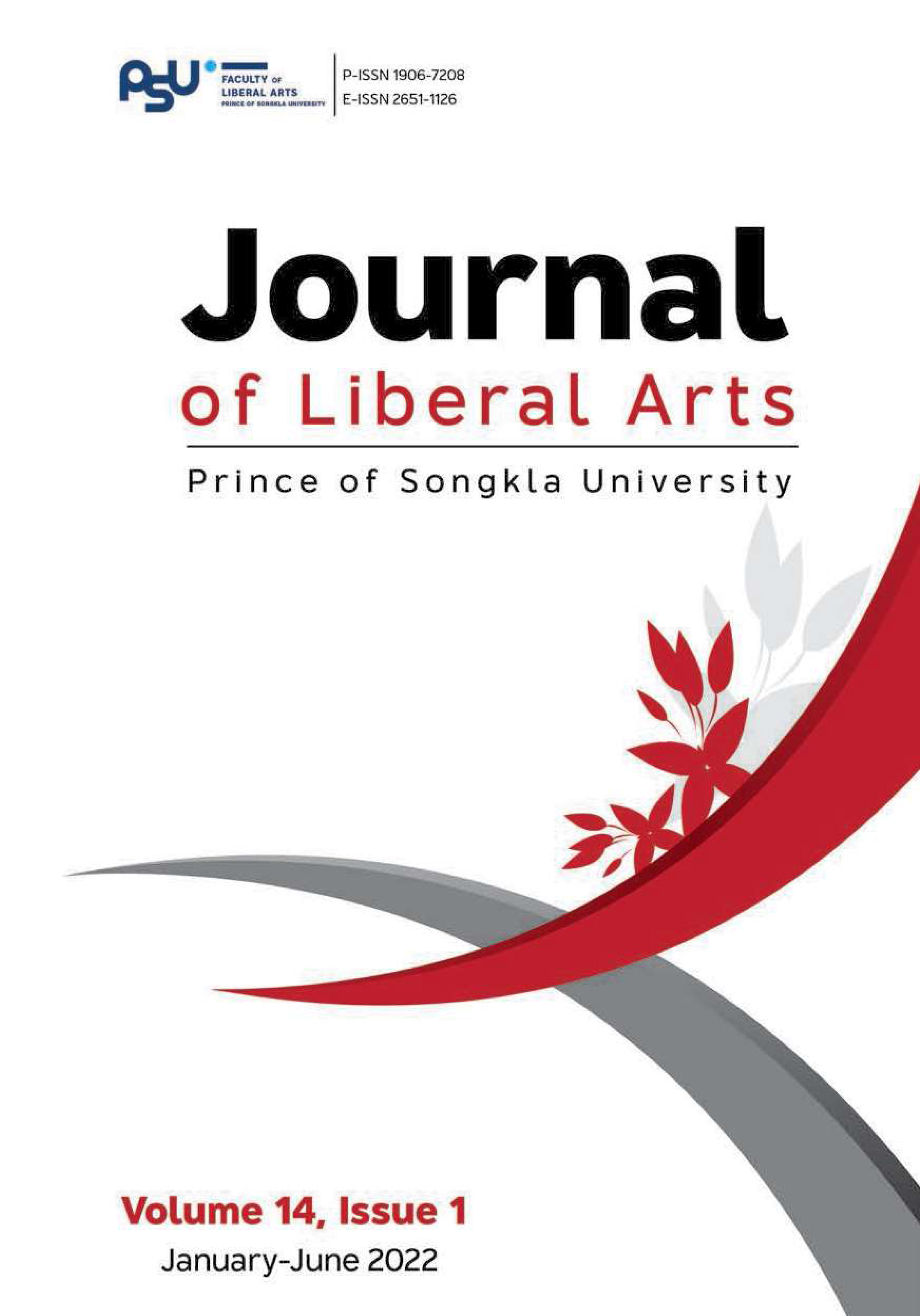Examining Contradictions within the Term ‘Sustainable Development’, including the Case of the ‘Thai Sufficiency Economy’
DOI:
https://doi.org/10.14456/jlapsu.2022.11Keywords:
sustainable development, sufficiency economy, self-contradictions in the concept of sustainable developmentAbstract
This article discusses the contradictions of the term ‘sustainable development' by comparing the different positions—locational and chronological—and the different socio-cultural and personal contexts of people involved in sustainable development. Before the emergence and global recognition of a fixed definition of sustainable development in 1987 by the Brundtland Commission, or known as the ‘Brundtland’ definition, its meaning was contested for a long period. Sustainable development is, indeed, an approach which emphasises two often contradictory schools of thought: one concerned with limiting the excessive consumption of natural resources; the other focused on material development for economic growth and human well-being, but dependent on the availability of natural resource consumption. The terminology of sustainable development remains rather controversial and subject to tension. It may take a considerable effort beyond placing two problematic development terms and their related concepts together to ensure reconciliation between environmentalists and development economists. On the other hand, there are other perspectives to viewing the terminology of sustainable development as inherently contradictory. Sustainable development can be more or less straightforward, deeper or shallower, or broader or narrower than either certain local cultural definitions or the definition by the Brundtland Commission. Such local cultural definitions potentially have their ways to balance uneven development and creating their practices to cope with development. Illustrating this argument is a specific case study of the Thai sufficiency economy.
References
Arora, N. K., & Mishra, N. (2021). COP26: More challenges than achievements. Environmental Sustainability, 4, 585–588.
Bernstein, S. (2001). Ideas, social structure and the compromise of liberal environmentalism. European Journal of International Relations, 6(4), 464–512.
Brandon, P. S., & Lombardi, P. (2005). Evaluating sustainable development in the built environment. Blackwell Science.
Bulkeley, H., Jordan, A., Perkins, R. & Selin, H. (2013). Governing sustainability: Rio+20 and the road beyond. Environment and Planning C: Government and Policy 2013, 31, 958–970.
Camfield, L., Masae, A., McGregor, J. A. & Promphaking, B. (2013). Cultures of aspiration and poverty? Aspirational inequalities in northeast and southern Thailand. Social Indicators Research, 114, 1049–1072.
Carley, M., & Christie, J. (2000). Managing sustainable development (2nd ed.). Earthscan.
Connelly, S. (2007). Mapping sustainable development as a contested concept. Local Environment, 12(3), 259–278.
Elliott, J. A. (1999). An introduction to sustainable development (2nd ed.). Routledge.
Hadden, J., & Seybert, L. (2016). What’s in a norm? Mapping the norm definition process in the debate on sustainable development. Global Governance, 22, 249–268.
Hamstead, M., & Quinn, M. (2005). Sustainable community development and ecological economics: Theoretical convergence and practical implications. Local Environment, 10(2), 141–158.
Jitsanguan, T. (2008). Study on sufficiency economy movement: Lessons learned from 40 sufficiency economy communities. Office of the National Economic and Social Development Board. [in Thai]
Krook, M. L., & True, J. (2010). Rethinking the life cycle of international norms: The United Nations and the global promotion of gender equality. European Journal of International Relations, 18(1), 103–127.
McGregor, A. (2009). New possibilities? Shifts in post-development theory and practice. Geography Compass, 3(5), 1688–1702.
McKinnon, K. (2008). Taking post-development theory to the field: Issues in development research, Northern Thailand. Asia Pacific Viewpoint, 49(3), 281–293.
McMichael, P. (2016). Development and social change (6th ed.). Sage.
Ministry of Foreign Affairs. (1994). The Earth Summit’s agenda for change. Amarin Corporation.
Ministry of Natural Resources and Environment. (2013). An introduction to sustainable development.Amarin Corporation.
Noy, D. (2011). Thailand’s sufficiency economy: Origins and comparisons with other systems of religious economics. Social Compass, 58(4), 593–610.
Piboolsravut, P. (2004). Research note: Sufficiency economy. ASEAN Economic Bulletin, 21(1), 127–134.
Redclift, M. (1987). Sustainable development: Exploring the contradictions. Routledge.
Schumacher, E. F. (1993). Small is beautiful: A study of economics as if people mattered. Vintage.
Silva, K., Janta, P., & Chollacoop, N. (2022). Points of consideration on climate adaptation of solar power plants in Thailand: How climate change affects site selection, construction and operation. Energies, 15(171), 1-22.
Srivastava, J. (2011). “Norms” of sustainable development: Predicament and the problematique. India Quarterly, 67(2), 93–110.
Villalba, U. (2013). Buen Vivir vs development: A paradigm shift in the Andes?. Third World Quarterly, 34(8), 1427–1442.
Vogler, J. (2020). The international politics of COP26. Scottish Geographical Journal, 136(1–4), 31–35.
Wanasilp, W., & Tangvitoontham, N. (2015). The relationship between the understanding of philosophy of sufficiency economy and the living standard: The case study of a sufficiency economy community in Lower Northern Region of Thailand. International Journal of Business and Economic Development, 3(1), 87–95.
Watene, K. (2016). Valuing nature: Māori philosophy and the capability approach. Oxford Development Studies, 44(3), 287–296.
WCED. (1987). Our common future. Oxford University Press.
Downloads
Published
How to Cite
Issue
Section
License
Copyright (c) 2022 Thaenphan Senaphan Buamai

This work is licensed under a Creative Commons Attribution-NonCommercial-NoDerivatives 4.0 International License.
The authors retain the copyright to their article but the Journal of Liberal Arts, Prince of Songkla University reserves the exclusive rights to first publication.






